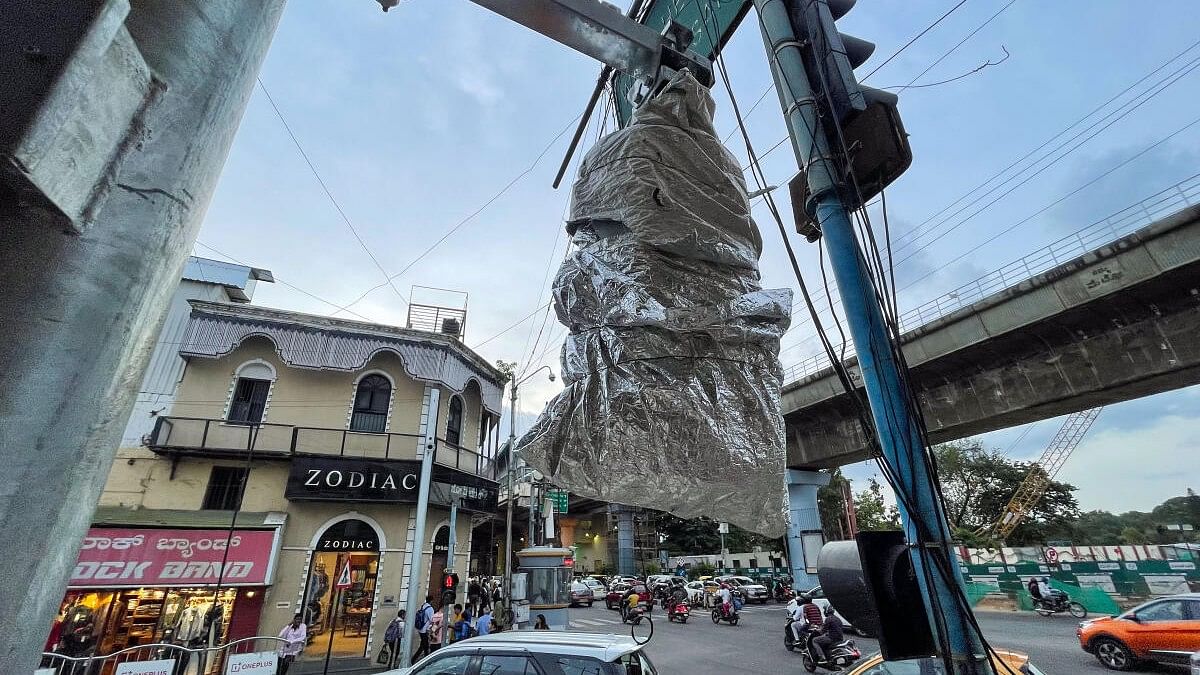
The city will soon get a Japanese smart traffic signal-control system to ease bottlenecks, especially in CBD areas. Close to 30 control systems are being installed with state-of-art systems in the city.
Credit: DH PHOTO/PUSHKAR V
The long-delayed project to implement smart signals powered by Japanese technology in Bengaluru is finally seeing some progress, with trials beginning at one of the junctions on Monday.
Currently, trials and testing is being conducted at the Kensington Road and Murphy Road junction, noted Deepa Cholan, Commissioner, Directorate of Urban Land Transport (DULT). "The full-fledged commissioning of the ATIMS signal systems is planned for (the) end of March 2024," she told DH.
The Advanced Traffic Information and Management System (ATIMS) project, or the smart signals project, is funded by the Japanese International Cooperation Agency (JICA), and is being implemented in 28 junctions in the city by the DULT.
The smart signals will measure traffic piling up at each junction and queue length at a network of junctions on MG Road, Hosur Road and Old Madras Road in real time to develop optimised signal plans. Based on this, signal timings will change accordingly and potentially reduce traffic delays in the area, according to DULT officials.
Although the project was first announced in 2014, the implementation agreement was signed on June 30, 2021, and the on-site construction work began only in October 2022. Several delays ensued, due to customs clearance issues and permissions for civil works from concerned authorities.
It was due to be commissioned by the end of September 2023, according to former DULT commissioner Manjula V, who responded to DH's queries in August last year. However, that was delayed once again due to several reasons, including issues with power supply.
Once implemented, these signals would, under ideal conditions, reduce the length of vehicle queueing by about 30 per cent at those junctions, noted DULT.